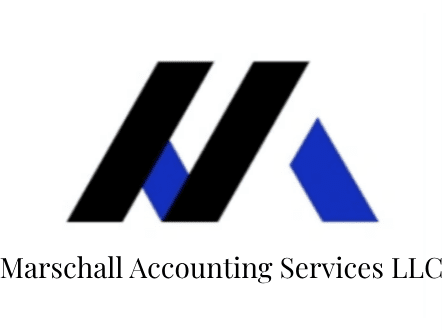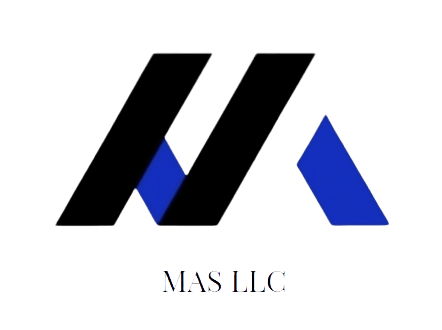November 22nd, 2024
In an era where sustainability and climate accountability are increasingly critical to corporate governance, regulations surrounding climate-related disclosures are becoming more expansive and globally aligned. From the SEC’s proposed rule on “The Enhancement and Standardization of Climate-Related Disclosures for Investors” to the EU’s Corporate Sustainability Reporting Directive (CSRD) and California’s SB 253 and SB 261, entities are grappling with compliance in a shifting regulatory landscape. This article examines these frameworks, highlighting their similarities and differences, and situates them in the context of global trends in sustainability reporting and assurance as reflected in the recent findings by IFAC and AICPA & CIMA.
SEC’s Climate-Related Disclosure Proposal
The SEC’s proposed rule represents a landmark step toward standardizing climate-related disclosures for publicly traded companies. Its key provisions include mandatory reporting of greenhouse gas (GHG) emissions, integration of climate risks into financial disclosures, and assurance requirements for certain climate-related metrics. These measures aim to improve the quality, reliability, and comparability of climate disclosures for investors.
Greenhouse Gas (GHG) Emissions Reporting
Under the proposal, companies must disclose their GHG emissions categorized into three scopes as defined by the GHG Protocol:
- Scope 1 Emissions: Direct emissions from sources owned or controlled by the company, such as fuel combustion in company-owned vehicles or facilities.
- Scope 2 Emissions: Indirect emissions from the consumption of purchased energy, such as electricity, heat, or steam. For instance, emissions resulting from the generation of electricity purchased by the company.
- Scope 3 Emissions: All other indirect emissions occurring across the company’s value chain, including emissions from suppliers, distributors, and end-users. Scope 3 is often the most challenging to measure due to its complexity and reliance on data from third parties.
The SEC requires Scope 1 and 2 emissions disclosures for all registrants, while Scope 3 emissions must be reported only if material to the company or if explicitly included in the company’s emission reduction targets. Scope 3 disclosures also include a safe harbor provision to mitigate liability risks due to data uncertainty.
Assurance Requirement and the Role of the CPA
The SEC proposal mandates independent attestation (assurance) of Scope 1 and 2 emissions disclosures for large accelerated filers, with phased implementation:
- Limited Assurance: Required initially to verify the existence and accuracy of the reported data.
- Reasonable Assurance: Required in subsequent years, involving a deeper evaluation of the methodologies and systems used for emissions measurement.
The CPA plays a critical role in providing these assurance services. As trusted advisors, CPAs are uniquely positioned to:
- Evaluate data integrity: Ensure the accuracy and reliability of GHG emissions data, which often involves reviewing underlying measurement systems, sampling methods, and estimation techniques.
- Assess reporting methodologies: Confirm alignment with recognized standards like the GHG Protocol or ISAE 3000 (Revised), ensuring that companies use consistent and transparent reporting frameworks.
- Strengthen internal controls: Collaborate with companies to enhance governance over sustainability data collection and reporting processes, reducing the risk of errors or misstatements.
- Provide independent assurance: Deliver third-party assurance reports that enhance the credibility of climate-related disclosures, increasing investor confidence.
For CPAs, this emerging area of assurance represents a significant opportunity to expand their expertise in environmental reporting and assurance, leveraging their audit and analytical skills to meet growing market and regulatory demands.
EU Corporate Sustainability Reporting Directive (CSRD)
The EU’s CSRD represents a significant leap in climate and sustainability reporting:
Applicability: Extends to nearly 50,000 companies, including non-EU entities with significant operations in the EU.
- Standardized framework: Adopts the European Sustainability Reporting Standards (ESRS), which ensure granular and forward-looking sustainability data.
- Assurance mandate: Requires limited assurance for sustainability information, transitioning to reasonable assurance by 2028.
- Value chain disclosures: Strong focus on Scope 3 emissions and due diligence across the value chain.
Compared to the SEC’s rule, CSRD has a broader applicability, covering a wide array of non-financial metrics and imposing stricter due diligence obligations. Its progressive assurance requirements emphasize the EU’s commitment to a comprehensive sustainability framework.
California’s SB 253 and SB 261
California has taken a pioneering role in state-level climate accountability:
- SB 253 (The Climate Corporate Data Accountability Act): Targets companies with over $1 billion in annual revenues operating in California. It requires reporting of Scope 1, 2, and 3 emissions, creating significant compliance challenges for global firms.
- SB 261 (The Climate-Related Financial Risk Act): Focuses on entities with annual revenues above $500 million, mandating the disclosure of climate-related financial risks and risk mitigation strategies.
These laws complement the SEC’s initiative by emphasizing the accountability of large emitters and risk resilience. However, unlike the SEC and EU frameworks, California’s legislation does not impose assurance mandates—yet.
Global Trends in Sustainability Disclosure and Assurance
Findings from the IFAC and AICPA & CIMA report on sustainability assurance reveal key trends:
- In 2022, 95% of firms reported some form of ESG information, but only 64% obtained assurance, reflecting a growing but uneven adoption of assurance practices.
- Among assurance engagements, 58% were conducted by audit firms, while 38% were conducted by other service providers, showcasing the competitive dynamics in the assurance market.
- Firms increasingly apply ISAE 3000 (Revised) for assurance engagements, a trend aligned with the SEC’s and CSRD’s focus on high-quality, standardized assurance frameworks.
Comparative Analysis and Challenges
The SEC, CSRD, and California laws collectively highlight a shift toward mandatory climate disclosure with varying levels of rigor:
- Scope and Applicability:
- The SEC focuses primarily on public companies, whereas CSRD encompasses a wider range of entities, including SMEs in supply chains.
- California laws target high-revenue entities with operations in the state, filling a gap in federal regulation.
- Assurance Requirements:
- Both the SEC and CSRD emphasize assurance, but the latter adopts a phased approach that raises compliance costs over time.
- California’s laws currently lack assurance mandates, making compliance less burdensome but potentially less reliable.
- Scope 3 Emissions:
- The CSRD and California SB 253 place a significant emphasis on Scope 3 emissions, posing challenges for entities with complex supply chains. The SEC takes a more cautious approach, requiring Scope 3 disclosures only if material.
IASB Updates on Sustainability Standards and Their Implications for Corporate Reporting
In addition to the SEC’s climate-related disclosure proposal, global sustainability reporting is evolving through key initiatives spearheaded by the International Accounting Standards Board (IASB). These updates reflect a growing commitment to standardized, actionable, and globally consistent sustainability reporting. Below is an analysis of the recent IASB updates highlighted in the reviewed drafts:
1. IASB Taxonomy Update – Sustainability and Climate-Related Disclosures
This update focuses on providing a structured framework for investors to search, extract, and compare sustainability-related financial disclosures effectively. By aligning sustainability disclosures with taxonomy updates, this initiative enhances usability and accessibility, ensuring that:
- Investors can more easily analyze climate-related financial impacts across entities and industries.
- Reporting entities benefit from increased comparability, fostering transparency and investor confidence.
- Corporate disclosures can be integrated with digital reporting tools, enabling seamless access to sustainability data.
For companies subject to SEC disclosure requirements, this taxonomy update may provide guidance on presenting sustainability metrics in a way that aligns with international expectations, further bridging the gap between U.S. and global standards.
2. IASB Methodology for Enhancing International Applicability of SASB Standards
The IASB is working on refining the methodology to enhance the international applicability of Sustainability Accounting Standards Board (SASB) standards. These enhancements aim to:
- Allow companies to adopt SASB standards regardless of jurisdiction or local GAAP requirements.
- Foster global consistency in sustainability reporting by harmonizing standards across borders.
- Provide flexibility for entities in diverse sectors and regions, ensuring the standards are practical and relevant.
This methodology aligns with the SEC’s intent to create standardized sustainability disclosures, offering a pathway for global companies to comply with both U.S. and international frameworks, minimizing duplication of efforts.
3. IASB Proposed International Standard on Sustainability Assurance Engagements
This proposed standard establishes clear definitions and requirements for sustainability information, particularly regarding:
- Reasonable assurance: A deeper level of scrutiny to validate the accuracy and reliability of sustainability data.
- Limited assurance: A more limited scope designed to confirm the plausibility of disclosures.
- Integration of sustainability assurance into financial audits, positioning assurance as a core component of corporate accountability.
For CPAs and other assurance providers, this standard represents a significant opportunity to expand their role in sustainability assurance. It also aligns with the SEC’s phased assurance requirements for Scope 1 and 2 emissions disclosures, providing a globally recognized framework for delivering these services.
Impact on Global Reporting Practices
These IASB initiatives work synergistically with regulatory frameworks like the SEC’s proposal, the EU CSRD, and California’s SB 253 and SB 261. Together, they:
- Drive global convergence in sustainability reporting, allowing multinational entities to meet investor and stakeholder demands efficiently.
- Enhance assurance frameworks, ensuring sustainability disclosures are reliable and decision-useful.
- Promote data transparency and comparability, enabling investors to make informed decisions on sustainability-related risks and opportunities.
By integrating these updates into sustainability strategies, corporations can better align with international best practices, prepare for upcoming reporting and assurance requirements, and demonstrate their commitment to transparency and climate accountability. CPAs and corporate professionals must stay ahead of these developments to provide strategic guidance and ensure compliance in an increasingly interconnected regulatory environment.
Integrating Findings into Practice The IFAC and AICPA & CIMA findings underscore a gap in assurance coverage that regulators aim to bridge. With only 64% of firms obtaining assurance for sustainability disclosures and audit firms conducting 58% of these engagements, there is a clear opportunity for the accounting profession to expand its role. CPAs must invest in capacity- building to meet the growing demand for ISAE 3000-compliant assurance engagements, especially as regulators like the SEC and EU mandate stricter disclosure and assurance standards.
Conclusion
The SEC, EU CSRD, and California’s legislative efforts collectively raise the bar for climate-related disclosures and sustainability reporting. While the frameworks share common goals of transparency, investor protection, and climate accountability, their varied scopes, assurance mandates, and implementation timelines create a complex compliance landscape. Accounting professionals must adapt to these changes by leveraging their expertise in assurance and aligning practices with international standards to support entities in meeting these evolving requirements.




